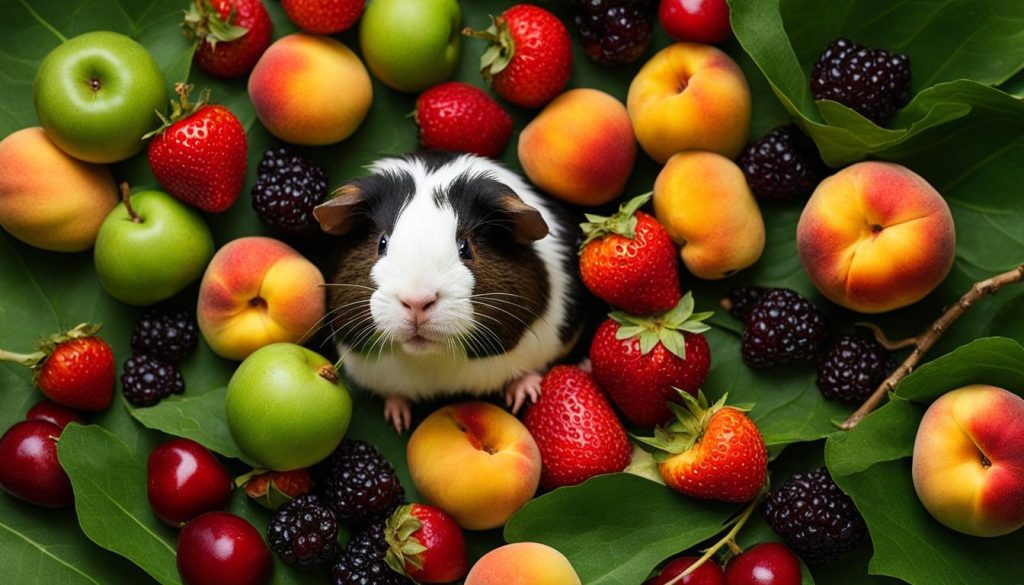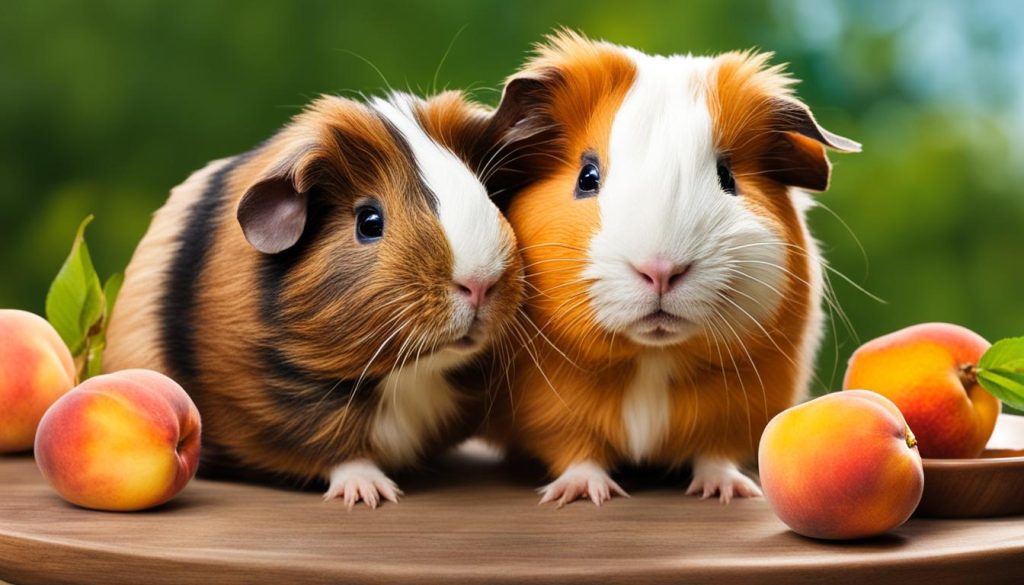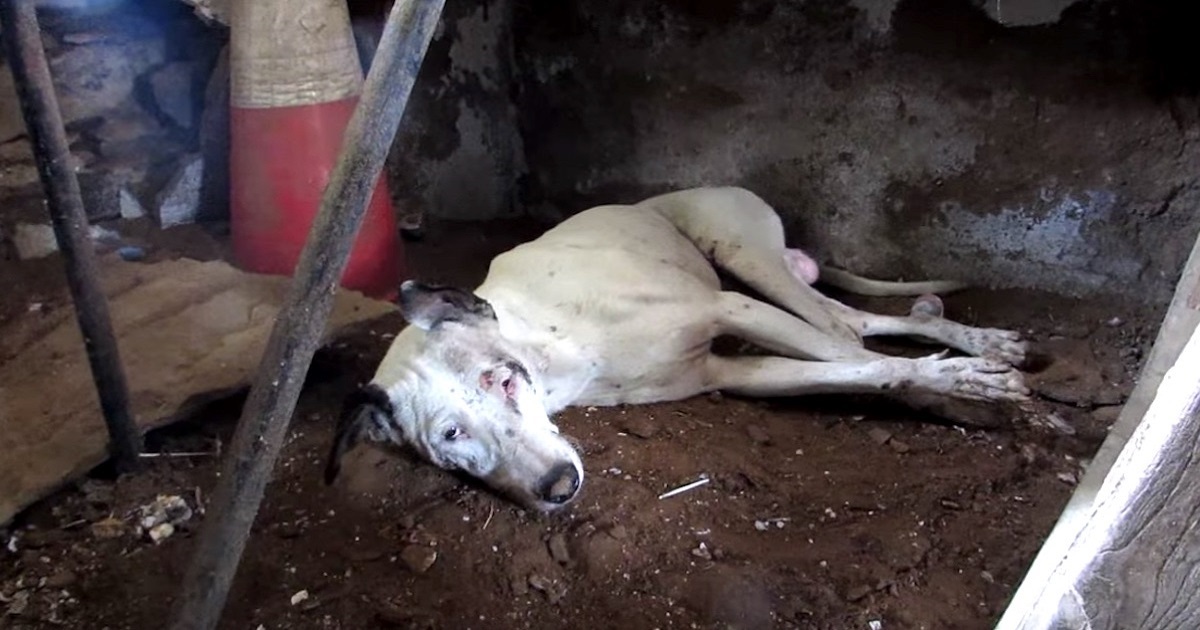As a guinea pig owner, I always strive to provide my furry friends with a balanced and healthy diet. One question that often comes to mind is whether guinea pigs can enjoy the sweet juiciness of peaches. After doing some research and consulting with veterinarians, I’m here to share the vet-approved advice on guinea pigs and peaches. So, can guinea pigs eat peaches? Let’s find out!
Peaches are indeed safe for guinea pigs to consume, but it’s crucial to offer them in moderation. While these fuzzy little creatures can indulge in the occasional slice of peach as a treat, it shouldn’t be a part of their daily diet. Peaches are low in oxalates and high in moisture, natural sugars, and acidity. However, their high sugar and acidity levels can lead to health issues like diarrhea and dental problems if fed too frequently.
To ensure your guinea pig’s well-being, it’s best to offer them no more than one small slice of peach per week. Remember to remove the pit before serving it to them as it can be a choking hazard. While peaches do contain some vitamin C, there are other fruits and vegetables that are higher in this essential nutrient.
Can Guinea Pigs Eat Peaches? Yes, they can – once in a while.
- Guinea pigs can eat peaches in moderation as a treat.
- Peaches are low in oxalates and high in moisture, natural sugars, and acidity.
- Feeding peaches too frequently can lead to health issues like diarrhea and dental problems.
- Offer guinea pigs no more than one small slice of peach per week.
- Do not feed guinea pigs the peach pit as it is a choking hazard.
The Nutritional Value of Peaches for Guinea Pigs
When it comes to the nutritional value of peaches for guinea pigs, there are several important factors to consider. Peaches contain vitamins and minerals that are beneficial for guinea pigs, including vitamin C, which is essential for their overall health.
However, it’s important to note that the vitamin C content in peaches is relatively low compared to other fruits and vegetables. A medium raw peach contains about 10.2 milligrams of vitamin C. While this can contribute to a guinea pig’s daily vitamin C intake, it may not be sufficient on its own.
Guinea pigs require daily supplements of vitamin C to prevent deficiencies, as their bodies cannot produce this nutrient naturally. Luckily, there are other fruits and vegetables that are higher in vitamin C and can be included in a guinea pig’s diet to ensure they receive an adequate amount.
In addition to providing some vitamin C, peaches also offer other nutritional benefits. They are a good source of water, which helps keep guinea pigs hydrated. Peaches are also rich in carbohydrates, fiber, calcium, phosphorus, potassium, and magnesium. The fiber content in peaches supports healthy digestion and contributes to a well-functioning gastrointestinal tract.
While peaches can provide some nutritional value to guinea pigs, it’s important to remember that they should be given in moderation. As with any new food, it’s crucial to introduce peaches gradually, starting with small amounts, and closely monitor your guinea pig’s response. If there are any signs of digestive issues or adverse reactions, it’s best to consult a veterinarian.
Safe Fruits for Guinea Pigs
When it comes to providing healthy snacks for your pet guinea pig, there are several safe fruits that you can offer. While peaches can be given to guinea pigs in moderation, it’s important to remember that fruits should be considered as treats and make up only a small portion of their diet. The majority of their daily food intake should consist of hay and vegetables.
Some other fruits that are safe for guinea pigs to enjoy include:
- Apples (without skin)
- Bananas
- Blackberries
- Blueberries
- Cantaloupe melon
- Cranberries
- Gooseberries
- Grapefruit
- Grapes (red and green)
- Guava
- Honeydew melon
- Kiwi
- Loganberries
- Mango
- Mulberries
- Oranges
- Passion fruit
- Pineapple
- Plums
- Prickly pear
- Raspberries
- Starfruit
- Strawberries
- Tangerines
- Tomatoes
- Watermelon
It’s important to introduce these fruits slowly and in small amounts to avoid any digestive issues or adverse reactions. Remember, variety is key when it comes to providing a balanced diet for your guinea pig. Offering a mix of different fruits and vegetables will ensure that they receive all the necessary nutrients for optimal health.

Guidelines for Feeding Peaches to Guinea Pigs
When it comes to feeding peaches to guinea pigs, there are a few important guidelines to keep in mind. Peaches should be offered to guinea pigs as an occasional treat rather than a regular part of their diet. It’s important to remember that portion sizes should be kept small to prevent any potential health issues.
The peach skin is edible and can actually provide additional fiber and antioxidants for your guinea pig. However, it’s crucial to thoroughly wash the peach skin to remove any pesticides or chemicals. This ensures that your furry friend is consuming a safe and healthy treat.
One thing to always keep in mind is that peach pits should never be fed to guinea pigs. They pose a choking hazard and can be harmful to their health. It’s best to remove the peach pit before offering the fruit to your guinea pig.
If you decide to introduce peaches into your guinea pig’s diet, it’s recommended to start with a small amount and gradually increase if your guinea pig tolerates it well. This allows you to monitor their response and ensure that they don’t experience any negative effects.
If you notice any changes in your guinea pig’s appetite, energy level, or digestion after feeding them peaches, it’s important to stop giving them the fruit and consult a veterinarian. They can provide further guidance and ensure the health and well-being of your furry friend.

– Feed peaches to guinea pigs as an occasional treat in small portions.
– Thoroughly wash the peach skin to remove any pesticides or chemicals.
– Never feed guinea pigs peach pits as they can be a choking hazard.
– Start with a small amount of peach and monitor your guinea pig’s response.
– Consult a veterinarian if any adverse reactions occur.
Considerations for the Guinea Pig’s Overall Diet
When it comes to the diet of guinea pigs, it’s important to provide them with a balanced and nutritious meal plan. While fruits like peaches can be a healthy treat, they should not make up a significant part of their overall diet.
The majority of a guinea pig’s diet should consist of hay and leafy, green vegetables. Hay is an essential source of fiber, aiding in digestion and helping to wear down their constantly growing teeth. It’s recommended to offer guinea pigs unlimited access to fresh, high-quality hay.
Guinea pig pellets that are specifically formulated for their nutritional needs can also be included in their daily diet. These pellets provide additional essential vitamins and minerals to support their overall health. Remember to choose high-quality pellets that do not contain added sugars or artificial ingredients.
It’s crucial to ensure that guinea pigs receive all the necessary nutrients for their well-being. Along with hay and pellets, it’s important to offer a variety of fresh, leafy greens such as kale, romaine lettuce, and spinach. These vegetables provide essential vitamins and minerals to support their immune system and overall health.
As for fruits, including peaches, it’s important to limit their intake and monitor portion sizes. Excess sugar and acidity can lead to health issues in guinea pigs, so it’s best to offer small amounts of fruits as occasional treats.
While guinea pigs can enjoy the occasional treat of peaches, a well-rounded and balanced diet should consist mainly of hay, leafy greens, and pellets. By providing a varied and nutritious meal plan, you can ensure that your guinea pig remains healthy and happy.
Conclusion
Guinea pigs can safely enjoy peaches as a treat, but they should not be a regular part of their diet. While peaches do provide some nutritional benefits, such as vitamin C, there are other fruits and vegetables that are higher in this essential nutrient. It’s important to introduce new foods slowly and observe your guinea pig’s response to ensure they tolerate it well.
If you choose to feed your guinea pig peaches, remember to do so in moderation. Avoid giving them large portions and limit their peach consumption to prevent potential health issues like diarrhea and dental problems. Always remove the peach pit, as it poses a choking hazard. Additionally, make sure to wash the peach skin thoroughly before offering it to your guinea pig to remove any pesticides or chemicals.
While peaches can be a tasty addition to your guinea pig’s diet, it’s crucial to provide a balanced and varied meal plan. The majority of their diet should consist of hay and leafy green vegetables, which provide essential fiber for digestion and help wear down their teeth. Guinea pig pellets formulated for their nutritional needs can also be included. By offering a well-rounded diet, you can ensure the overall health and well-being of your furry friend.
FAQ
Can guinea pigs eat peaches?
Yes, guinea pigs can eat peaches in moderation as a treat.
Are peaches safe for guinea pigs to consume?
Yes, peaches are safe for guinea pigs to consume, but they should not be a daily part of their diet.
What is the nutritional value of peaches for guinea pigs?
Peaches are low in oxalates and high in moisture, natural sugars, and acidity. They also provide water, carbohydrates, fiber, calcium, phosphorus, potassium, and magnesium.
How often can guinea pigs have peaches?
Guinea pigs should be offered no more than one small slice of peach per week.
Can guinea pigs eat the peach pit?
No, the peach pit should not be fed to guinea pigs as it is a choking hazard.
Are there other fruits that are safe for guinea pigs to consume?
Yes, there are other safe fruits for guinea pigs including apples, bananas, blackberries, blueberries, cantaloupe melon, cranberries, gooseberries, grapefruit, grapes, guava, honeydew melon, kiwi, loganberries, mango, mulberries, oranges, passion fruit, pineapple, plums, prickly pear, raspberries, starfruit, strawberries, tangerines, tomatoes, and watermelon.
What guidelines should I follow when feeding peaches to guinea pigs?
Peaches should only be offered as an occasional treat, and portion sizes should be small. The peach skin should be thoroughly washed to remove any pesticides or chemicals.
What should a guinea pig’s overall diet consist of?
The majority of a guinea pig’s diet should consist of hay and leafy, green vegetables. Guinea pig pellets that are specifically formulated for their nutritional needs can also be included.
Can guinea pigs have peaches as a staple food?
No, peaches should not make up a significant part of a guinea pig’s overall diet. They should only be given as a treat in limited amounts.






